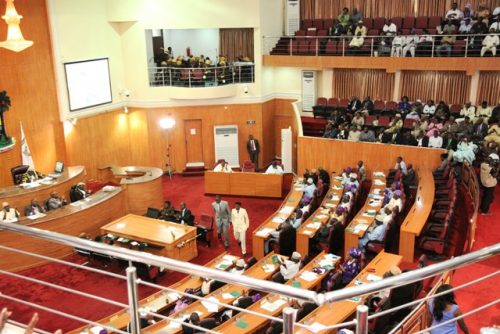By KP Reporter
The Lagos State House of Assembly has called on Governor Babajide Sanwo-Olu to convene an urgent stakeholders’ meeting to address the prevailing hardship faced by residents, emphasizing the need for sustainable solutions beyond palliatives.
Speaker of the House, Mudashiru Obasa, emphasised the urgency of the situation, highlighting the need for collective input from various stakeholders, including members of the National and State Assembly, as well as local government chairmen. Emphasizing the importance of unity and cooperation, Obasa cautioned against divisive rhetoric and urged leaders to play constructive roles in addressing the crisis.
Acknowledging the multifaceted nature of the challenges, Obasa emphasized the need for holistic solutions, encompassing economic, social, and governance aspects. He commended Governor Sanwo-Olu for initiatives such as the Trader Money Programme, aimed at providing relief to traders, while calling for enhanced efforts to tackle issues such as inflation and food scarcity.
The House directed relevant commissioners and agencies, including those for agriculture and transportation, to brief the Assembly on their plans to improve the quality of life for residents. Additionally, lawmakers urged stringent measures against those engaging in currency hoarding and emphasized the importance of empowering youth through sports and education.
During discussions under ‘Matter of Urgent Public Importance’, legislators expressed concern over the dire economic situation and called for immediate action to subsidize transportation and stabilize food prices in the state. They emphasized the need for a comprehensive approach to address the root causes of the crisis and advocated for strategies to enhance agriculture and power supply.
As the Assembly deliberates on ways to mitigate the impact of the economic downturn, lawmakers stressed the importance of fostering public awareness and engagement to foster understanding and support for government initiatives. They highlighted the need for transparency, accountability, and effective communication to rebuild trust and confidence in governance.


